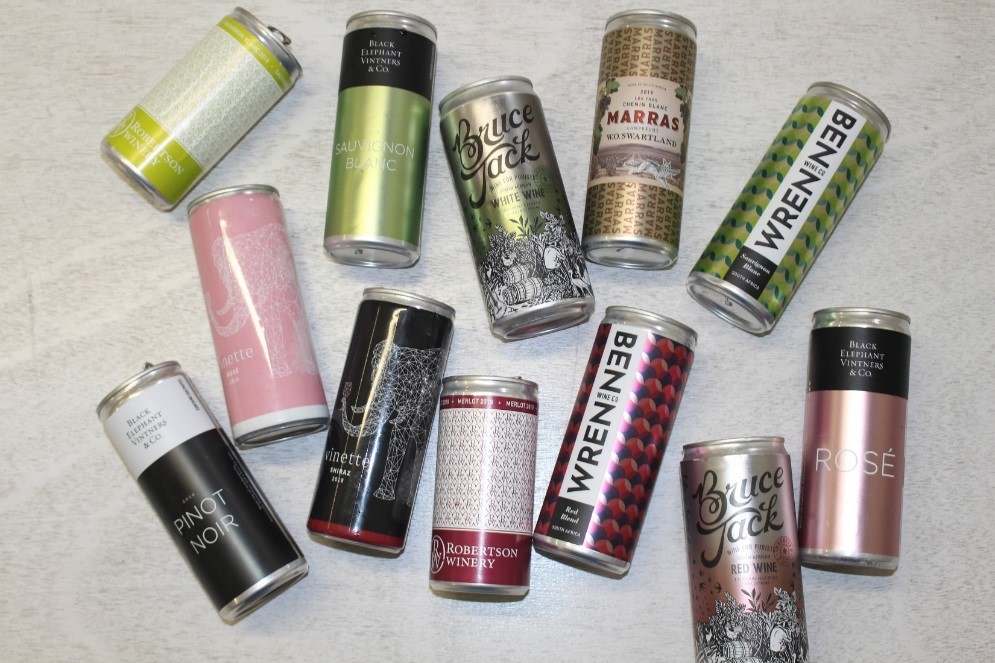SUSTAINABLE PACKAGING
South Africa’s Integrity and Sustainability seal was introduced in 2010. Among the requirements to qualify is that the wine has been produced sustainably, in an earth-friendly manner. Most people probably view this as what goes on in the vineyards and cellar.
Sustainability is just as important with packaging. Containers, closures, labels, boxes - all require a similar, sustainable approach.
Glass bottles: While the container mainly associated with wine is infinitely recyclable, weight and shape have a negative effect on environment and carbon footprint. Locally produced 750ml bottles may range in weight from 450 grams to 1,2 kgs. Bottles are also imported, doubling up on the carbon footprint if exported after being filled.
Aluminum containers: A 250ml aluminum bottle designed specifically for wine is both recyclable, resealable and the equivalent of a 750ml glass bottle is 25% lighter. Although not yet permissible in South Africa, this may change given the current success with aluminum cans.
A major issue with aluminum containers is the integrity of the liner which needs to be resistant to wine’s chemistry. This is subject to ongoing tests by local producer, Bevcan.
Partner in Renegade Wines, Jaap Pijl offers some ideas on the efficacy of cans versus bottles with regard to transport. A pallet holds 3840 cans or 960 litres of wine. Compare this with a pallet of wine, regularly 660 bottles equaling 495 litres. The weight equation very much depends on the glass bottle used, but even if the pallet of cans weighs more, the bottle pallet still carries just under 50% more dead weight.

Closures: African Closures inform screwcaps are manufactured from up to 50% recycled material and are themselves recyclable; natural corks, technical wine and sparkling wine corks are both recyclable and biodgradeable, while tin capsules and synthetic wax are recyclable.
Nomacorc Green Line closures have a new category called PlantCorc™; these are produced from renewable sugarcane-based raw materials using renewable energy and are recyclable.
Labels: Cotton, hemp and post-consumer waste are meeting the need for sustainable, organic and re-cycled content in US company, Avery Dennison’s range of labels.
Multi Color’s EnviroLabel™ , available locally, is made of 100% recycled post-consumer waste with a recyclable PET backing. According to Linda Smal of Haumann Smal Design Studio demand for sustainable wine label paper isn’t yet very strong because of concerns about labels dislodging in an ice bucket.
Boxes, fillers and wrappers: Rigid wall boxes with partition dividers made from recycled and recyclable material and fillers made of recycled paper shred offer an eco-friendly, sustainable solution, making Styrofoam and bubble wrap unnecessary. A clever idea for eco-packaging incorporating local material was devised in New Zealand with individual bottle wraps made of sheep’s wool and composite cardboard, 100% recycled and biodegradable. On a larger scale, Australian winemaker, Jordy Kay, has developed Great Wrap, a plant-based compostable industrial stretch wrap used instead of plastic to enclose pallets for export.
Many more creative initiatives for and use of sustainable packaging are there for the discovery and further fulfillment of South Africa’s Integrity and Sustainability seal.
- By Angela Lloyd